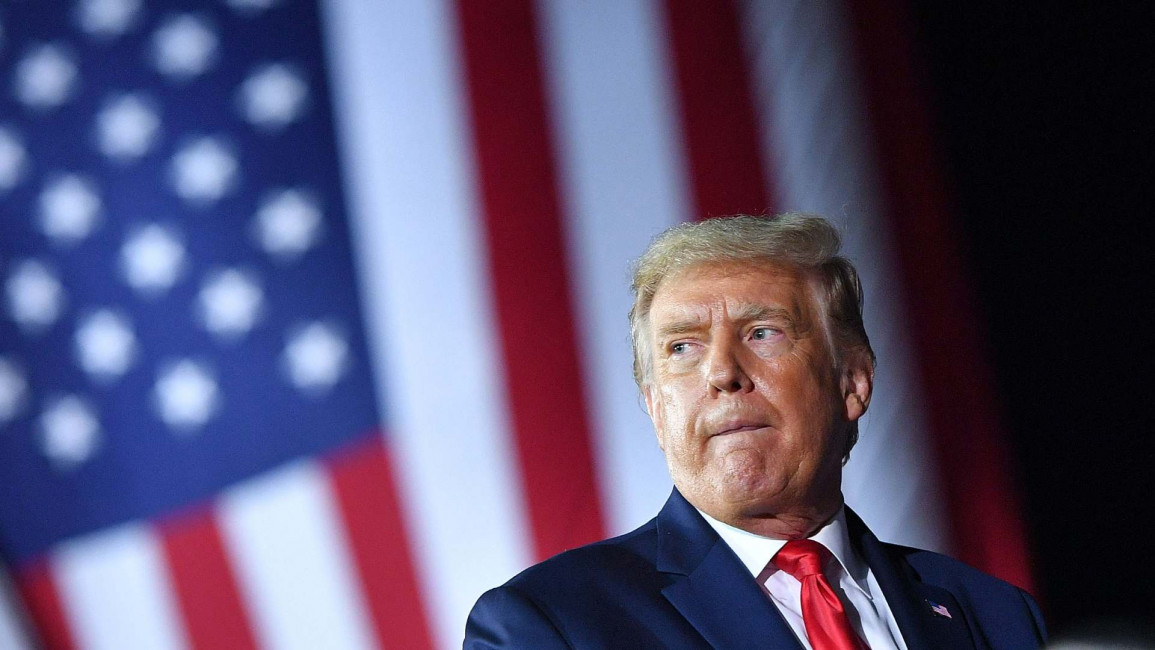Agencies contributed to this report.
Follow us on Facebook, Twitter and Instagram to stay connected
Trump hints at Saudi participation in UAE-Israel normalisation deal
While President Trump did not explicitly name the country, he suggested Saudi Arabia may eventually follow with a similar deal.
The UAE's normalisation of relations with Israel, which President Trump helped orchestrate, broke with years of Arab policy on the Middle East conflict and was condemned by the Palestinians as a "betrayal".
President Trump said another country could be 'added into' the signing ceremony for the so-called Abraham Agreement in Washington DC on September 15.
"Next week at the White House we'll be having a signing between the UAE and Israel, and we could have another country added into that. And I will tell you that countries are lining up that want to go into it," President Trump told reporters at the White House on Thursday in comments quoted by Reuters."You'll be hearing other countries coming in over a relatively short period of time. And you could have peace in the Middle East," he added.
|
"I think what ultimately will happen is you're going to have quite a few countries come in. The big ones are going to be coming in. I spoke to the king of Saudi Arabia, so we're talking. We just started the dialogue. And you'll have them come in," he said.
Trump also said he believed the Palestinians, who have rejected the UAE-Israel deal, would "get back into the fold".
"I'm frankly surprised they haven't been to the table earlier," the president said, adding his administration would consider lifting a freeze on aid to the Palestinians in exchange for a deal.
'Direction of peace'
President Trump's senior adviser and son-in-law Jared Kushner confirmed on Wednesday that Saudi Arabia agreed to open its airspace to all Israeli flights travelling eastward.
"Countries are starting to let go of old conflicts and move in the direction of peace," he said, adding that Bahrain has also agreed to open its airspace.
"It's a tremendous barrier that's been taken away. You're seeing everyday new announcements of airlines that are looking to fly from Israel to different Arab cities that traditionally they weren't allowed to go to and back.
The UAE, a federation of seven emirates which are mostly dependent on petrodollars, is keen to cash in on the influx of Israeli investment and travel, particularly as the coronavirus pandemic shrinks demand for oil and slows tourism.
Will Bahrain be next?
There have been rumours other Gulf countries are also considering normalising ties with Israel.
A report by Israeli Channel 12 claimed Israel's intelligence agency Mossad is carrying out "intense and very close communications" with Bahraini officials with the move to normalise ties by the end of this month.
The channel's military correspondent, Nir Dafouri, hinted that Israel may entice the Bahrainis with arms deals in exchange for normalisation.
The channel reported that US officials are also mediating between Israel and Bahrain, noting that the senior advisor to the US president and son-in-law, Jared Kushner, met with the Bahraini king and his crown prince last week.
Read also: How the Israel-UAE alliance formalises new fault lines in the Middle East
Bahrain, like most other Gulf countries, shares with Israel a common enemy in Iran, which Manama accuses of instigating protests by the nation's Shia Muslim majority against the ruling Sunni Al-Khalifa dynasty.
The UAE's decision to normalise ties with Israel has been welcomed by some Arab countries, but despite cheerleading from the US, others have rejected the idea and many approach it with caution.




